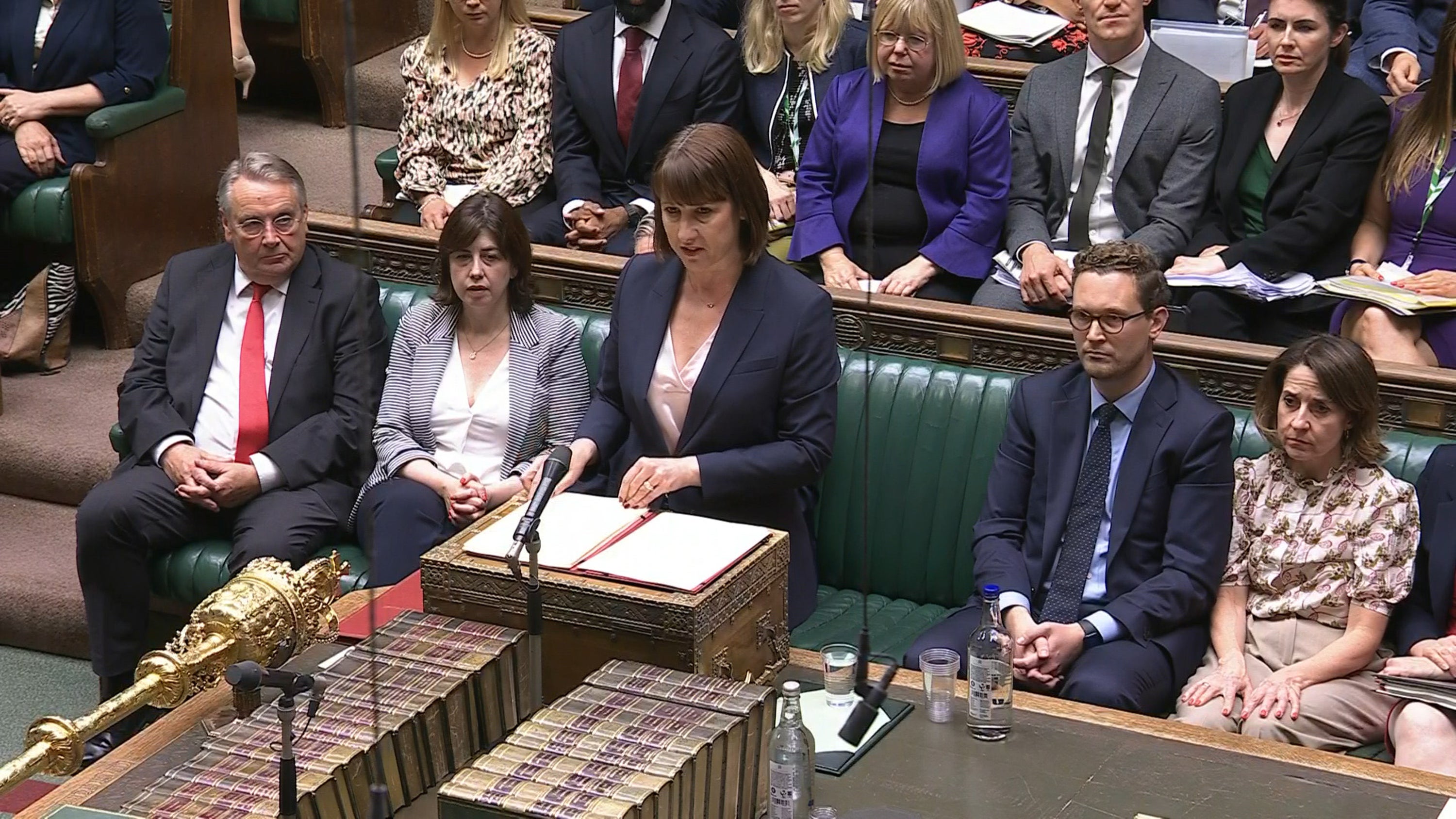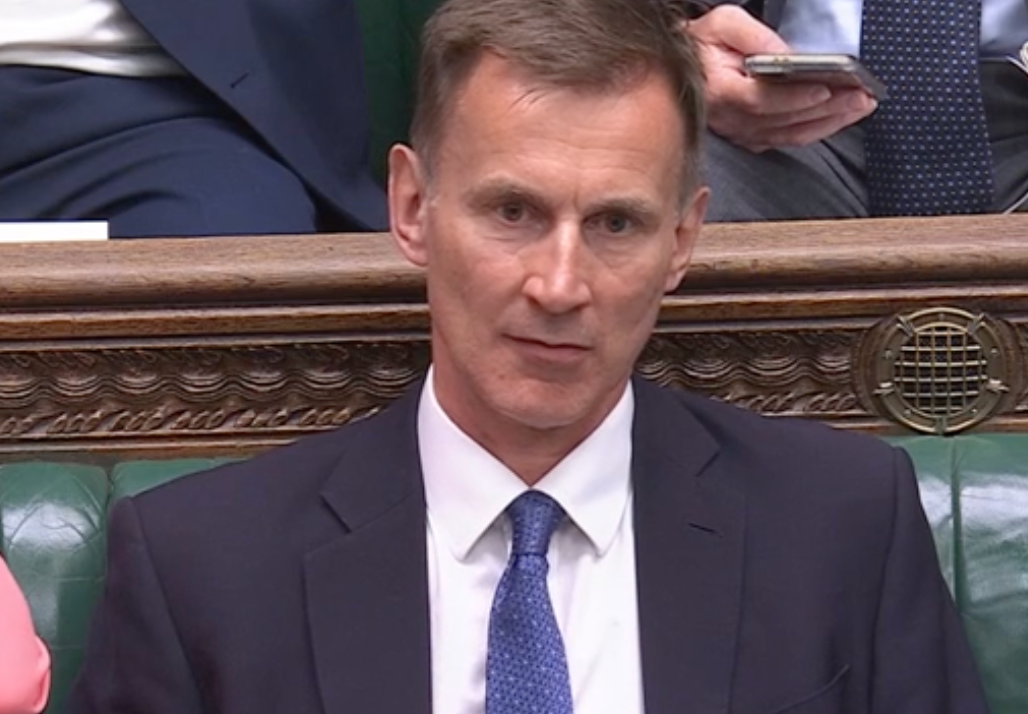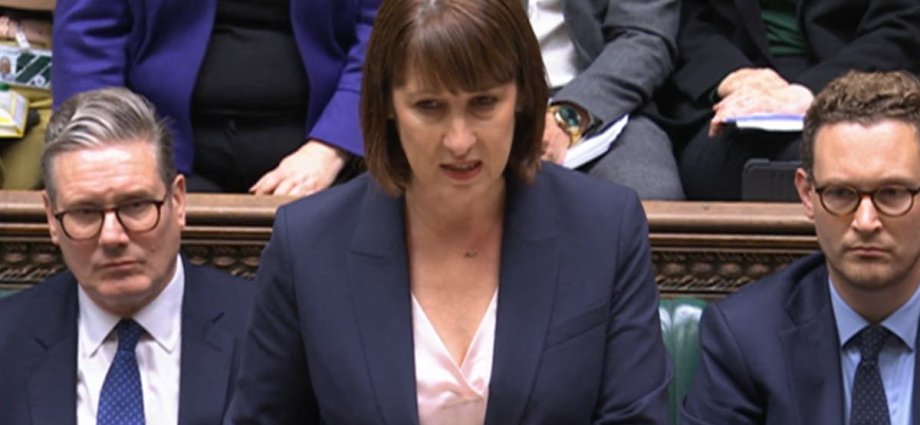Britain’s pensioners will take the brunt of a raft of brutal cuts announced by the new chancellor Rachel Reeves to deal with a £22bn black hole in the country’s finances.
To gasps in the Commons chamber, Ms Reeves announced that she would be removing winter fuel allowance payments for pensioners from almost 7 million households.
The bold move on the winter fuel allowance – a benefit that was first introduced by Labour’s Tony Blair in 1997 – is similar to a policy proposed by Theresa May in 2017, when the outcry over the proposal almost sank the Tory election campaign. The plan did not feature in the Labour election manifesto this year, and visibly came as a complete shock to MPs.
Ms Reeves also cancelled the plan to introduce the Dilnot Commission recommendations on social care for the elderly next year, meaning that people will still have to sell their homes to pay for residential care.

Announcing a series of cuts, a sombre-looking Ms Reeves repeated: “If we cannot afford it, we cannot do it.”
She accused the previous government of a “cover-up” of the state of the nation’s finances, and also took the axe to Rishi Sunak’s legacy, scrapping his Advanced British Standard qualification – saving £260m in the process – and his plans to reopen railways, to be paid for out of High Speed 2 savings.
But even with £5.5bn of cuts announced for 2024/25, and another £8.1bn for the following year, Ms Reeves warned that there would be worse to come in her Budget on 30 October.
She said: “I have to tell the House that the Budget will involve taking difficult decisions to meet our fiscal rules across spending, welfare and tax.”
The chancellor also ordered an immediate multi-year spending review, the first since 2021.

However, the Tories accused her of creating “a fictitious black hole” as a means of laying the ground for tax rises.
There is now a widespread belief that Ms Reeves will increase inheritance tax and capital gains tax in her Budget, although she repeated her commitment not to increase the three big taxes – income tax, national insurance and VAT.
An anguished-looking former chancellor, now Tory shadow chancellor, Jeremy Hunt described Ms Reeves’s claims as “shameless”.
He claimed that around half of the “fictitious black hole” comes from discretionary public sector pay awards, claiming that she had “caved in to the unions”.
The figures revealed that Ms Reeves’s decision to agree to the inflation-busting recommendations of the pay-review bodies on public sector pay – including 5.5 per cent for teachers and NHS staff, 6 per cent for the armed forces, and 5 per cent for prison officers – will cost the public £9.4bn beyond what had been budgeted for, out of the £22bn she identified as the financial black hole.
The figures did not include the huge 22 per cent settlement to bring the junior doctors’ strike to an end, which is set to cost another £9bn.
Mr Hunt said: “Today’s exercise is not economic, it is political. She wants to blame the last Conservative government for tax rises and project cancellations she’s been planning all along.”
But Ms Reeves insisted that she had “been left with no choice” on public sector pay, because the previous Tory government, unusually, had not made a submission to the pay-review bodies on affordability.
She also made it clear that there was a need to break the cycle of strikes that had brought the rail network, NHS and schools to a halt over the last two years.
The direct cost of the strikes to the NHS alone was £1.5bn, the Treasury claimed.
Among the other savings announced were ending the Rwanda migration scheme, saving £800m this year; cancelling the Stonehenge tunnel, A27 schemes, and plans to restore some previously closed railway lines, saving £785m next year; and ending non-essential spending by departments on consultancy services and communications, saving £600m this year.
The scrapping of the Dilnot reforms to social care, which would have introduced a more generous means test and raised capital limits for individuals’ contributions to their own care, saves £1.1bn over the next two years.
Means-testing the winter fuel allowance for pensioners saves almost £3bn in the next two years.
During the election, respected think tank the Institute for Fiscal Studies warned of a £20bn black hole in public finances and accused the major parties of creating “a conspiracy of silence”.
Ms Reeves, though, insisted that there was no way she could have seen how bad things were, despite the Tories claiming that the books were open during the election.
Among the significant pressures identified by the audit included £6.4bn for hotel accommodation for asylum seekers, £2.6bn for unfunded policy announcements since 2021, including the Advanced British Standard and the Network North scheme, and £2.2bn needed to cover pay awards from previous years.
Ms Reeves said these pressures had not been revealed to the public by the previous government.
She told MPs: “Before the election, I said that we would face the worst inheritance since the Second World War. Taxes at a 70-year high, debt through the roof, an economy only just coming out of recession.
“I knew all of these things. I was honest about them during the campaign.” But, she added there were things the Tories had “covered up from the country”.
Richard Hughes, Chair of the Office for Budget Responsibility (OBR), said he only became aware of the pressures “at a meeting with the Treasury last week”.
Announcing a review of the preparation of the OBR’s forecasts in March 2024, he said the findings from the Treasury audit would represent “one of the largest year-ahead overspends” outside of the pandemic.
Health experts warned about the consequences of Ms Reeves shelving social care reforms.
Nuffield Trust chief executive Thea Stein said: “Problems facing the public finances continue to mean that switching from fighting fires today to preventing them burning in the future seems to be all but impossible.
“Perhaps the starkest illustration of our failure to grapple with long-term issues is social care. Here, reforms have once again been shelved. While the specific reforms scrapped today were only a partial solution, they were at least something – and the danger now is that social care remains in the long grass.”
There were also questions over the chancellor’s commitment to growth.
Sam Richards, chief executive of pro-growth campaign group Britain Remade, said: “There are some projects in the Restoring Our Railways fund – like the Tavistock railway line – that are vital to delivering prosperity in parts of the country that don’t get the same focus as London and the South East. As the government reviews these projects, we’ll be making the case for those that we think are best value for money.”
The trade unions backed Ms Reeves’s decision to prioritise public sector pay.
TUC general secretary Paul Nowak said: “If we want to repair and rebuild our country – and secure higher growth – we need strong public services, investment in infrastructure, and a plan to make work pay.”











